Imagine, Experiment, Reflect
The first edition of the Critical Policy Conference



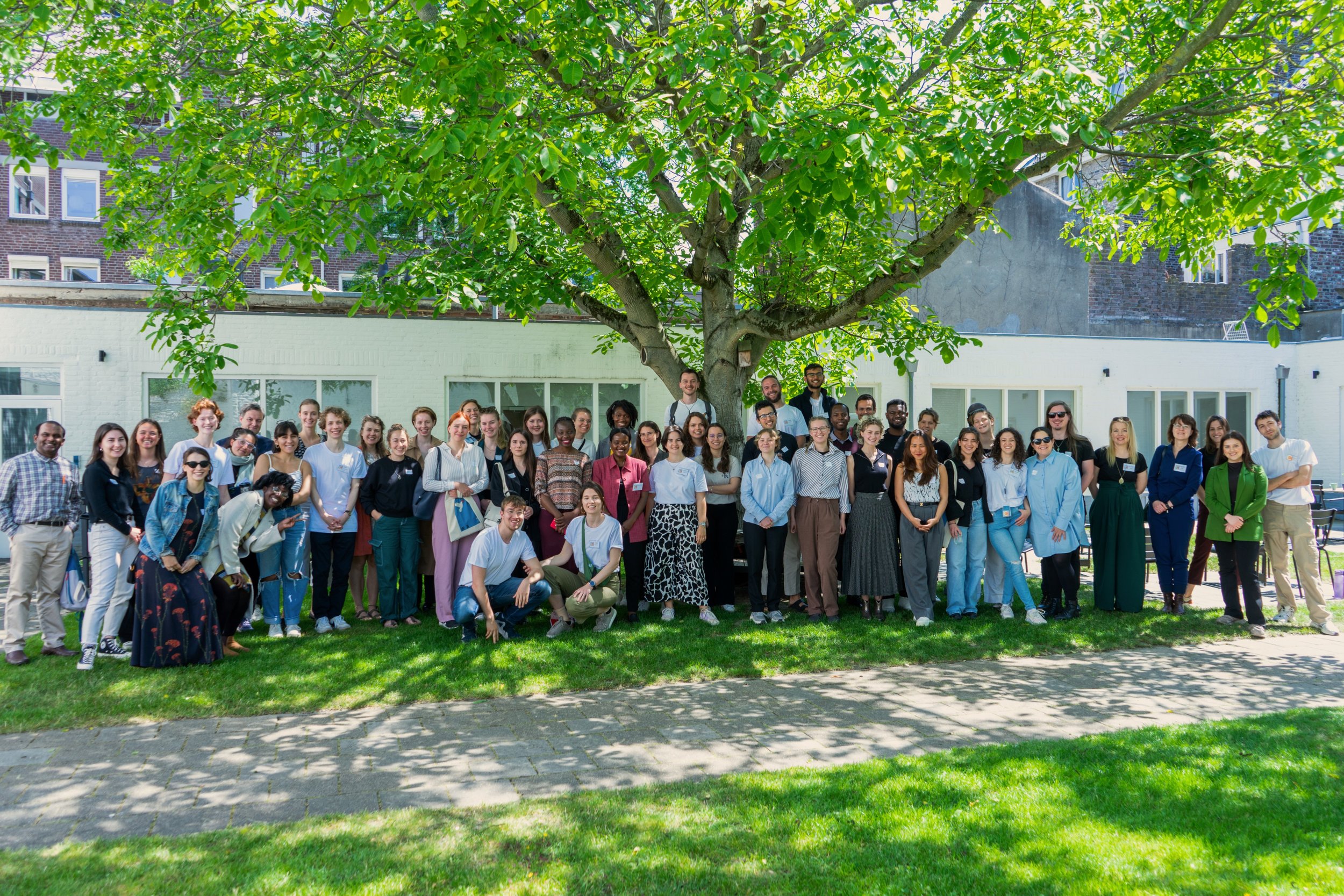





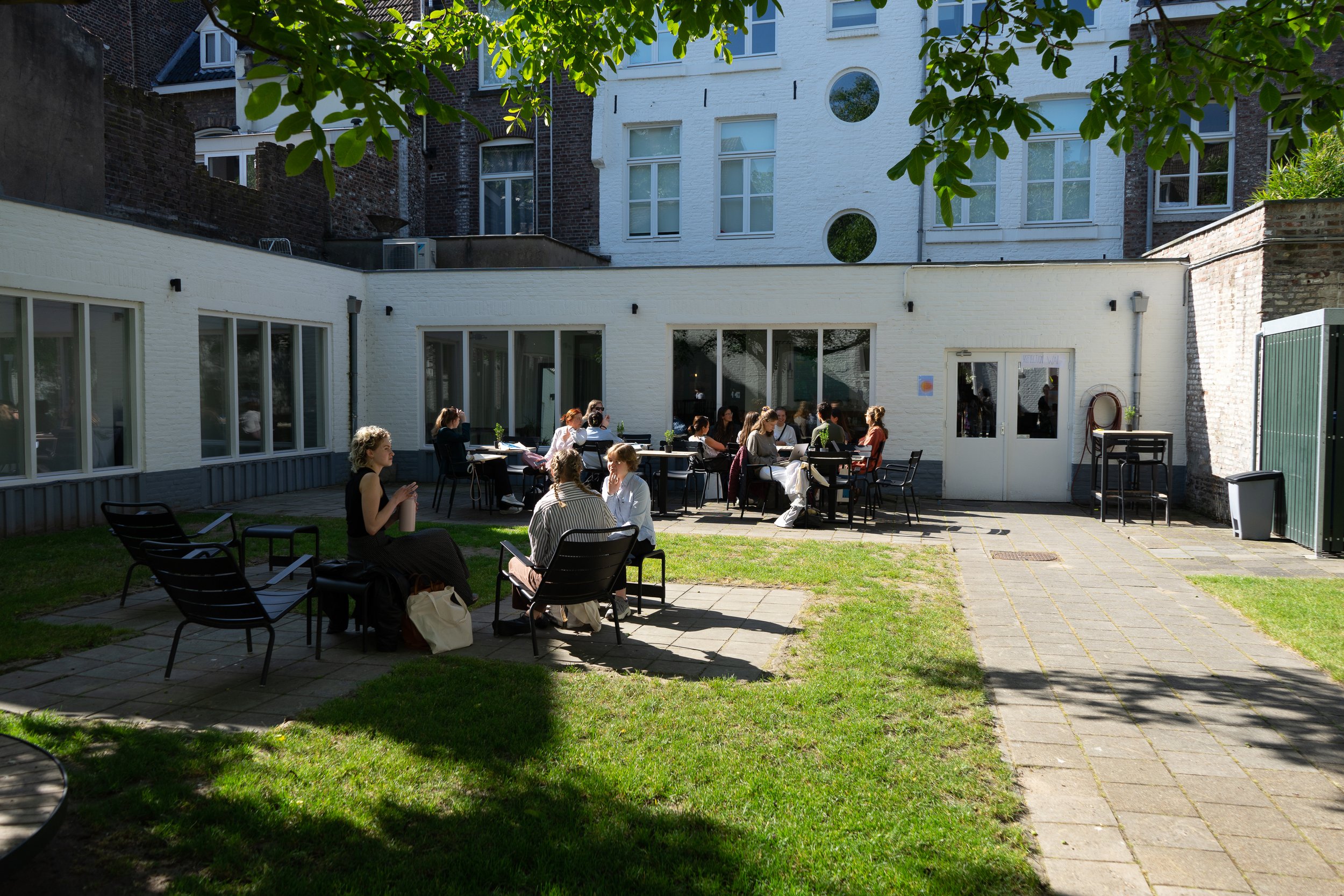
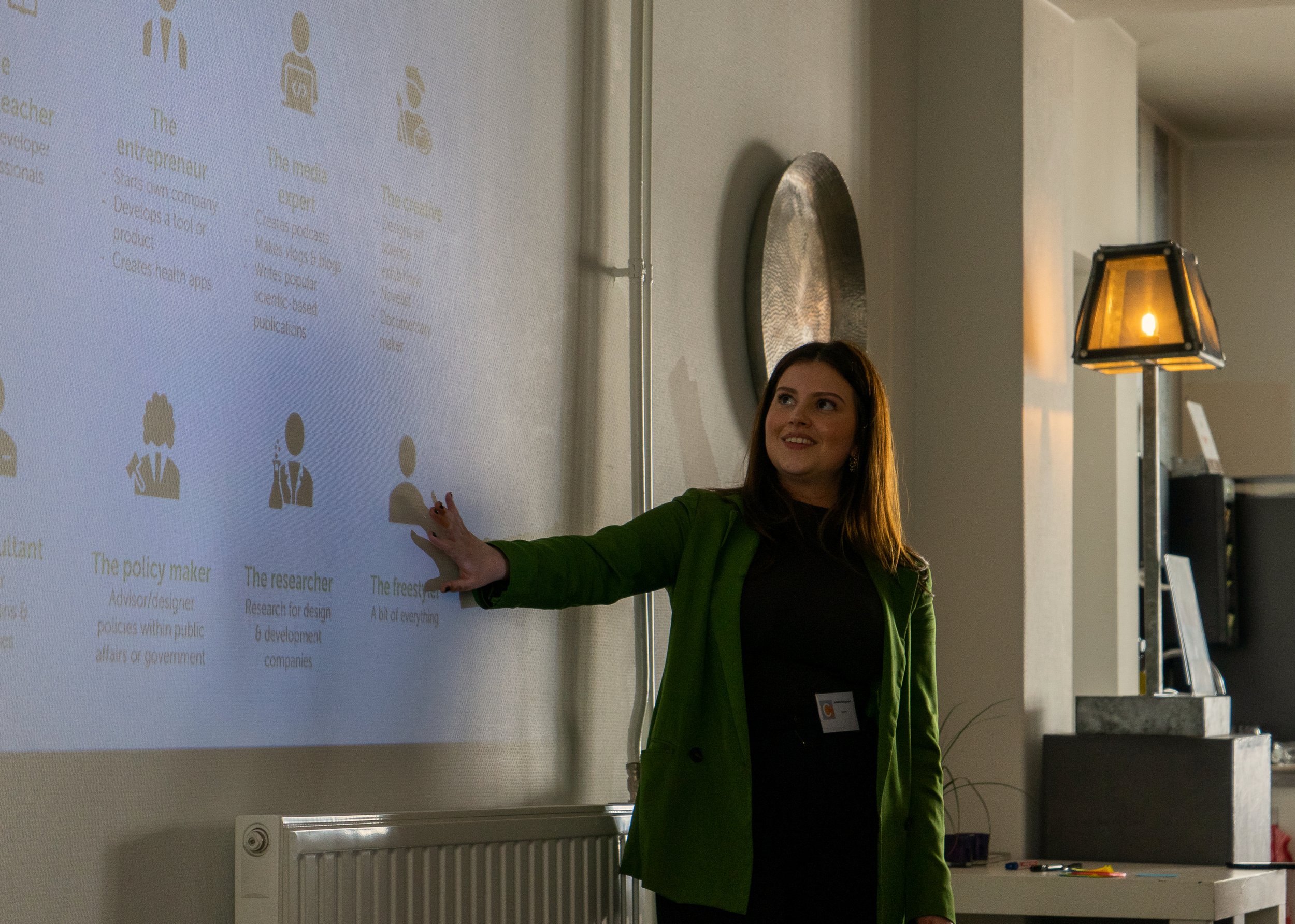

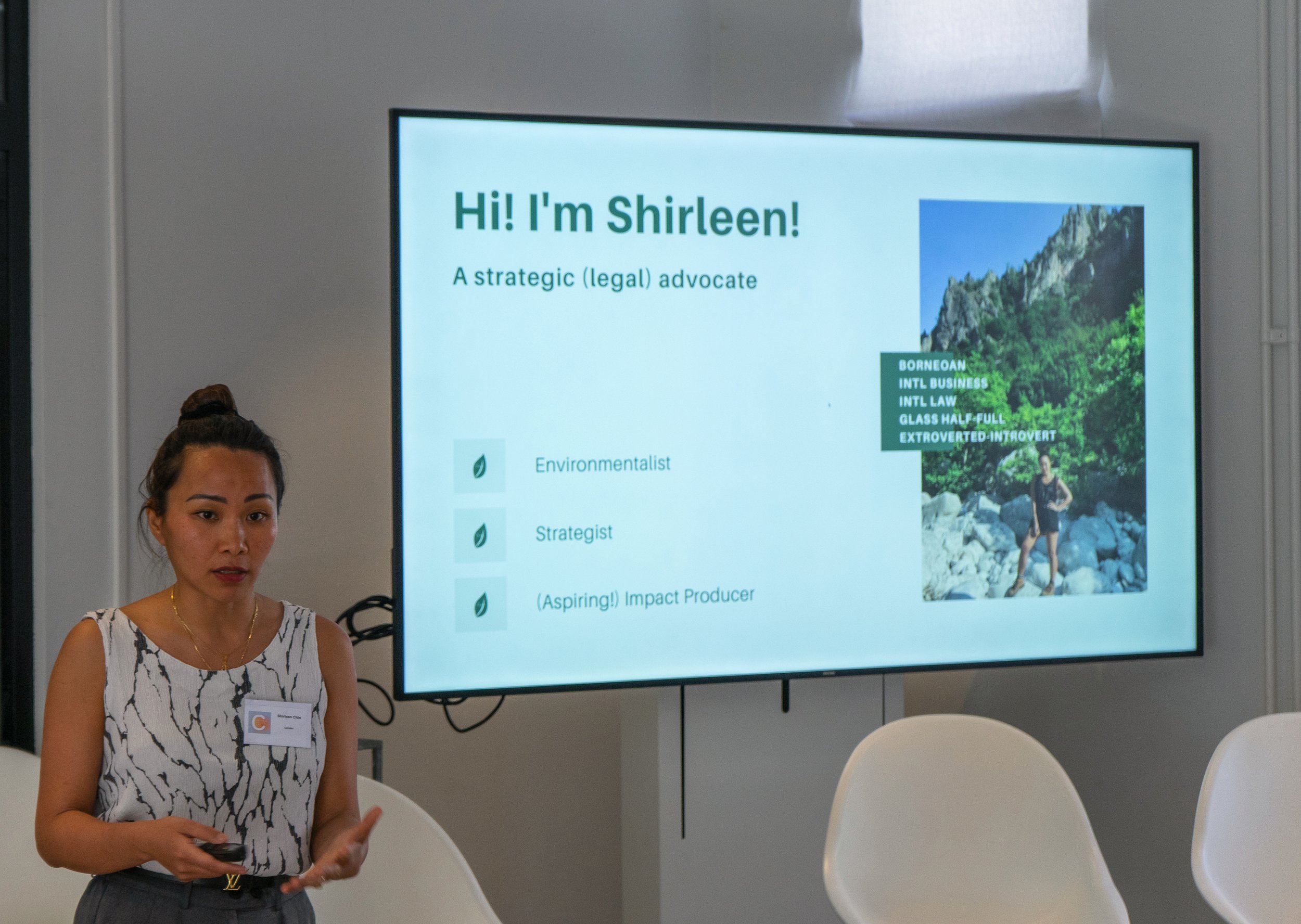




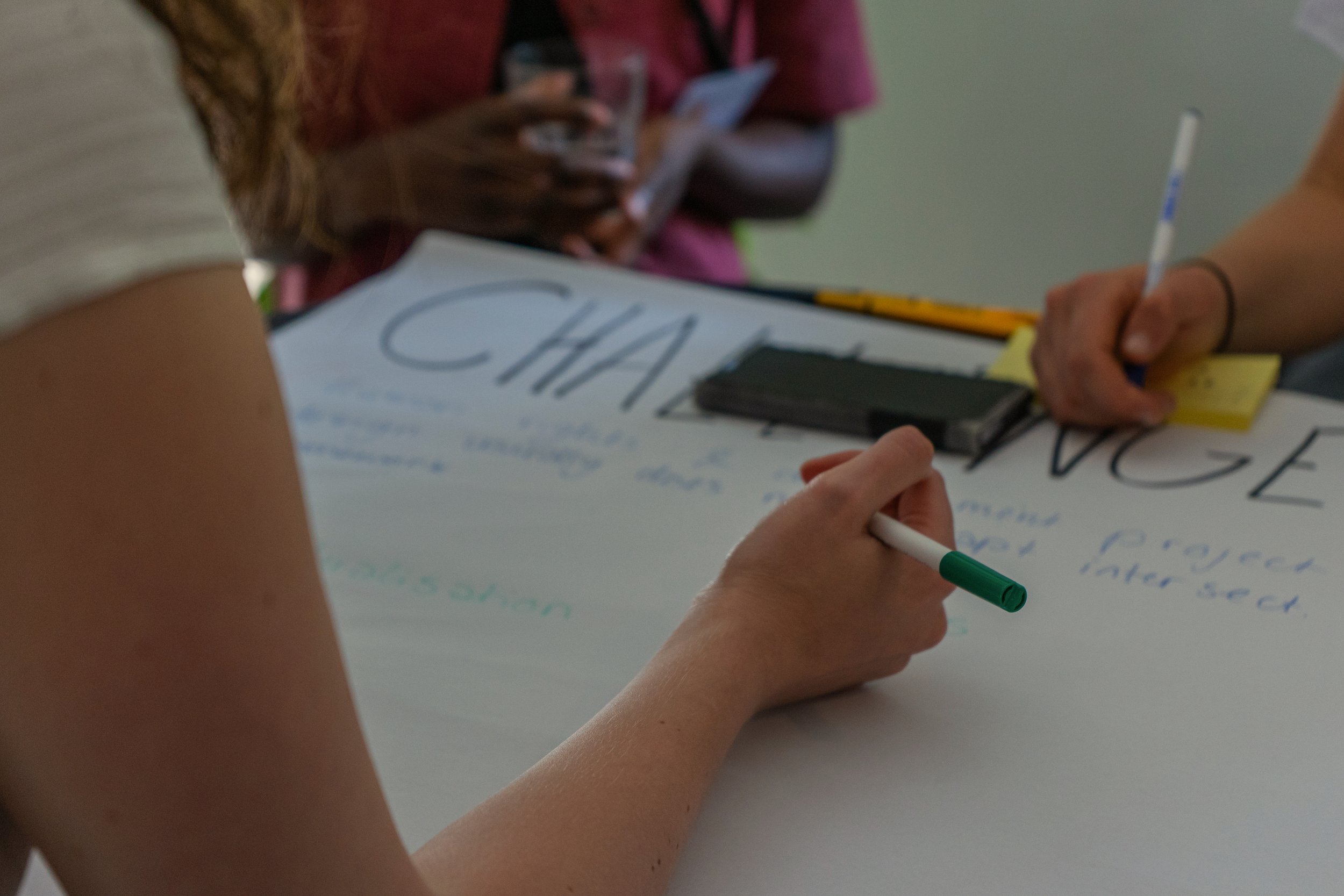
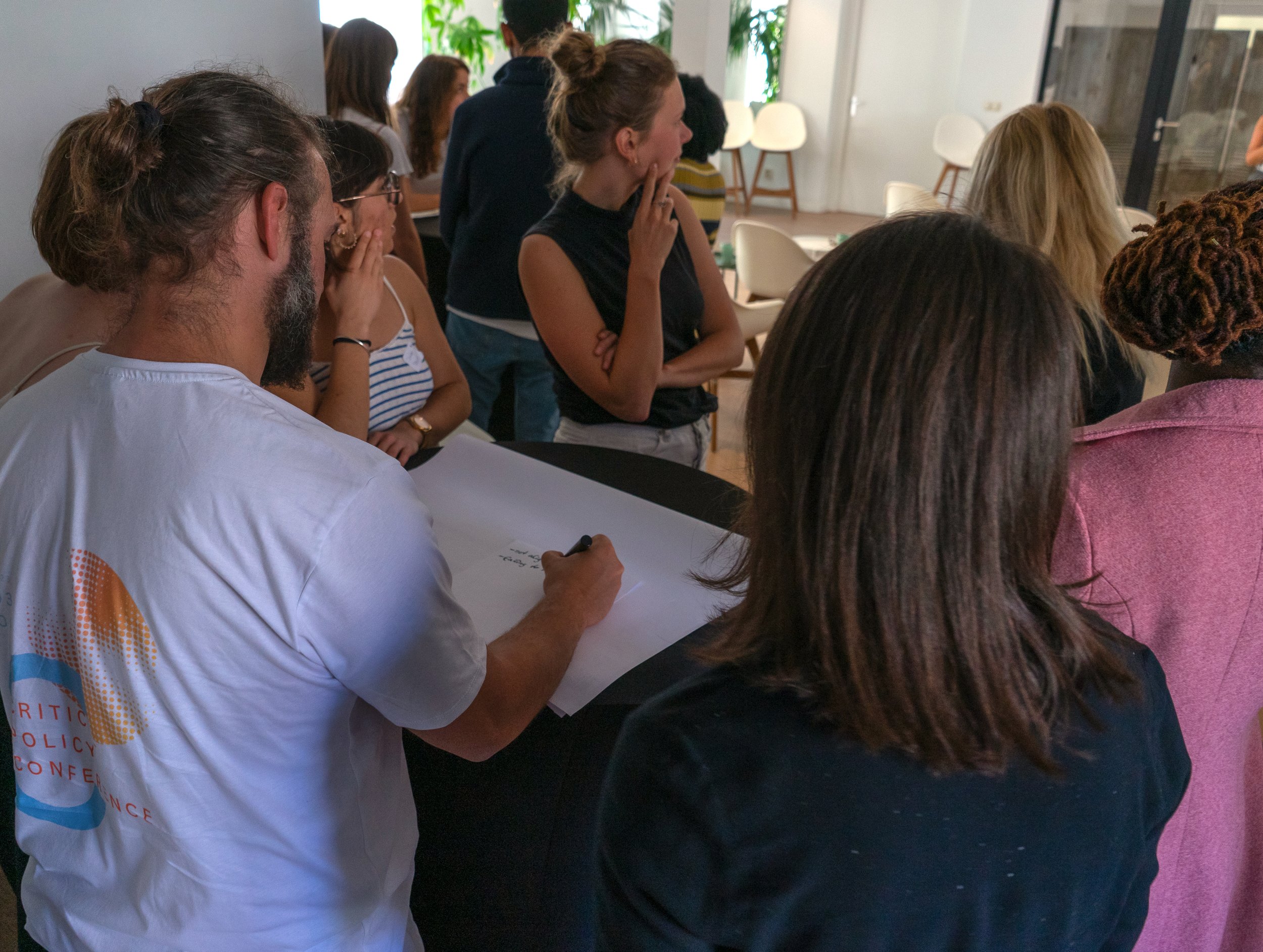
The first edition of the Critical Policy Conference welcomed around 70 participants from the UM community and beyond for a day full of workshops and discussions ranging from rethinking development collaborations to changing the paradigms of urban governance. Workshop facilitators were both scholars and practitioners who shared valuable insight on how to unpack and re-imagine approaches in policymaking and social impact.
Margit van Wessel talked about her most recent book, which connects ideas to re-imagine and re-center Civil Society collaborations in development, offering Southern-centred ways of understanding and developing relations, roles, and processes. Meanwhile, UNU alumni Chibuye Changwe explored social-political tensions in migration policy-making beyond the EU with the participants and challenged the notion that policy recommendations provide simple solutions. The third speaker filling one of the morning slots was Cassie Robinson sharing her work in growing Imagination Infrastructures in a UK context and how her work influences community policy-making and collective action.
The afternoon session was kicked-off by Juliëtte Boughouf and Isabelle Hommes, who introduced the THRIVE Institute and their work on the purpose economy.. Simultaneously, in another room, Shirleen Chin coached the participants in advocating for change in multilateral settings. The day ended for the participants either with a hands-on experience led by Marta Popiołek from Placemaking Europe, through which participants explored the fundamental principles that make up successful urban places and how to evaluate their qualities, or with a workshop by Helen Wishart that discussed solutions for minimum standards for intersectional approaches in the (I)NGO sector.
We are grateful for the financial contributions of the UM Global Citizenship Grant, SWOL, and the D&I grant to make this day possible.
Speakers
Program 2023
-
Registration is open from 9:30-10:00. Our team will provide you with a warm welcome at our location The Masters Wyck (Maastricht). Please bring your ticket and a curious mind-set.
-
In this session, we will welcome the participants and will get to know each other.
-
The panel will consist of all the speakers and will be moderated by two students affiliated with UNU MERIT and Maastricht University. The panellists will exchange views on various topics covering the conference topics and themes.
Panellists: Helen Wishart, Margit van Wessel, Marta Popiolek, Shirleen Chin, Chibuye Changwe,
Moderators: Sophia Yazdani Biuki and Dana Feijen
-
Margit van Wessel will discuss the main messages from the book “Reimagining Civil Society Collaborations in Development Starting from the South”, which was published by Routledge this year. Participants will be invited to reflect on its implications, exploring these from their perspectives.
The book re-imagines and re-centers Civil Society collaborations in development, offering Southern-centred ways of understanding and developing relations, roles, and processes, in theory and practice. It directs attention to CSOs as drivers of development in various contexts that we refer to as the Global South. This book takes a transformative stance, reimagining roles, relations and processes. Emphasizing ‘Starting from the South’, and exploring what that can look like, the book relativizes international collaboration. It also asks INGOs, Northern CSOs, and their donors to follow Southern CSOs’ leads, recognizing their contextually geared perspectives, agendas, resources, capacities, and ways of working. Based on 19 empirically grounded chapters, the book also offers an agenda for further research, design, and experimentation.
-
Chibuye Changwe will explore social-political tensions in migration policy making beyond the EU, aiming to challenge the notion that policy recommendations provide simple solutions. The session will shed light on the inherent biases and complexities of policy enquiry, emphasizing the need for regional analysis and addressing critical questions often overlooked in the policy process. By examining the role of policy analysts and planners, the discussion aims to foster a deeper understanding of the challenges and opportunities surrounding migration policy, advocating for a more nuanced and inclusive approach.
-
This will be a one-hour session where Cassie will share more about her work in growing Imagination Infrastructures in a UK context, and how that work is being used to influence policy-making and collective action in communities. She’ll talk through some of the thinking, practice and application and will welcome a discussion about participatory approaches to policy-making and the current limitations and opportunities there are in ensuring policy work doesn’t just re-pattern the status quo.
-
Juliëtte Boughouf, founder of THRIVE Institute and Isabelle Hommes, program manager Impact and Valorisation, will introduce the topic of Purpose Economy: an alternative approach to the economy that views the well-being of society and the environment as an essential part of economic development.
Participants will learn about various stakeholders that are actively integrating the purpose economy into their daily business activities. We will also look at your purpose. We will discover what makes your heart beat faster. What motivates you, and which social themes are essential to you. Don’t forget your laptop or something you can write on.
-
With more youths and civil society than ever before demanding change (e.g. tackling the climate crisis, demanding equal rights and protection) knowing how and where to step in effectively is crucial. Together with Shirleen Chin, participants will explore practical tools and techniques on how to best advocate for change.
-
Together with Helen Wishart, participants will envision how a coalition of collective intersecting feminist and social justice movements could rebuild the structures and strategic approach of the UN and INGOs to better reflect and support the realities of people experiencing intersectional forms of oppression.
UN systems are not designed to recognise and respond to intersecting forms of injustice issues. The design of UN and INGO programs, campaigns and advocacy also typically is not informed by a robust intersectional understanding of the inequality issues affecting the people they are intended to support. This means they are not able to support the needs of people at the axis of multiple forms of oppression in the context of inequality, poverty, rights abuse or humanitarian disaster.
During this workshop, participants will identify and workshop solutions for minimum standards for intersectional approach in program design using the intersectional traffic light.
-
Marta Popiołek from Placemaking Europe will introduce placemaking: an approach to urban planning and design that focuses on the creation of public spaces that are not only functional, but also foster a sense of community and social connection. By creating places where people want to spend time in, placemaking can help to improve the quality of life in a neighbourhood or city and create a stronger sense of belonging and connection among its residents. It aims to create a thriving, equitable, and sustainable environment by bringing together values, passion and action around our public spaces.
In this workshop session the core idea and basics of placemaking will be presented. Together we will explore examples of successful public spaces and discuss what elements and characteristics make them great places. We will deepen our understanding of urban space through The Place Game - a practical tool used for initiating the placemaking process. Through this hands-on experience, participants will discuss the key principles that make up successful urban places and how to evaluate their qualities, and together we will explore what makes a space we live in a place we love.
-
During this session we will have a closing round and a quick harvesting about the “aha” moments.
Location - The Masters Wyck
Address: Hoogbrugstraat 42, 6221 CS Maastricht







